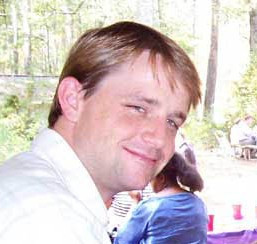Quick Guide to Success in Graduate School
 At the Graduate Student Day and Orientation Conference for 2004, Dr. Scott Baldridge presented a succinct list of helpful advice to guide students to success in (and beyond) Graduate School. With his permission, we present below an adapted version of the advice he gave.
At the Graduate Student Day and Orientation Conference for 2004, Dr. Scott Baldridge presented a succinct list of helpful advice to guide students to success in (and beyond) Graduate School. With his permission, we present below an adapted version of the advice he gave.
Successfully Navigating Graduate School in the Mathematical Sciences, or Preparing for the Job Market, by Scott Baldridge
Advice for first year students
- Make friends with other graduate students with whom you can study. Your teachers in each class will tell you to what extent you may or may not collaborate on homework problems with your classmates. The rules may differ from teacher to teacher.
- Go to colloquiums, take careful notes, and look up any terms you do not know.
- Concentrate on Qualifying Exams.
- Watch and learn from more advanced students.
- Ask your family for moral support now. Explain to your family about post-docs and faculty positions in other states.
Advice for second and third year students
- Concentrate on learning mathematics. Think hard about choosing an advisor/subject area. Talk with the teachers with whom you might be interested in working towards a dissertation.
- Plan with your advisor when to take the General Exam. Prepare for your General Exam, but do not panic over this or make it your sole objective.
- Try to follow your advisor's guidance. Meet with your advisor regularly. Do not be shy about seeking advice or help.
- Go to colloquiums and seminars.
- Take excellent notes — you will need them someday.
- Try auditing courses in other subjects.
- Go to conferences and meet other mathematicians!
- Participate in Workshops or Summer schools such as PCMI.
- Start or join a student seminar — give multiple talks.
- Submit a paper — it is worth its weight in gold. (Ask your advisor for guidance as to when your work is ready for publication!)
- Think about writing a book. This means think about how to organize what you are learning into a coherent whole? but do not write a book yet. It is too early!
Advice for final year students
- Attend AMS meetings and give a talk.
- Do not put off writing your dissertation until March; this is much harder than you might guess. Instead, regularly write up your research results.
- Try to get letter writers from multiple universities. Seek your advisor's guidance about this.
- Make yourself known to mathematicians in your field; give as many talks as possible about your work. Your dissertation, even if it is really good, will rarely publicize itself.
- Ask your advisor about applying for an NSF or other Postdoctoral Fellowship.
- Allow 2-3 months to prepare your C.V. and send applications.
- Submit your C.V. to MathJobs.org
- Start to think about research independently of your advisor.
Other advice
- Gain experience in as many types of teaching as possible, including teaching students of engineering, science, mathematics, and prospective school teachers.
- Do not go overboard on teaching. Be responsible about your duties and earn a good reputation for quality teaching, but balance your finite time and energy sensibly.
- Conduct yourself in a professional manner at all times at work.
- Write as many publishable papers as possible during your post-doc. Your papers are work of which you should be proud, so it will help to have a senior mentor to advise you in this.
Always remember
The professors in the LSU Mathematics Department are working very hard to help you have the experience of creating new and interesting mathematics. Whether you will embark on a career which emphasizes vigorous research or which emphasizes college teaching, the independence of thought which you learn in your doctoral research will help you to excel in your work. Because teaching provides the quick reward of being able to help students, it will be very tempting early in your career to set research aside and devote yourself only to teaching. While the Department is keenly interested in helping you become an excellent teacher, please consider seriously a first job in research. There are more opportunities to move from a research post-doctoral job to a teaching job than the reverse. Be aware that getting a tenure-track research position is very competitive, even in a good job market. Whatever your career goals are, you need to plan for the possibility of not getting your first choice of post-doctoral job. Talk with your advisor and be sure to apply for a wide range of jobs, both in terms of career emphasis and location. There are many ways to make your mark in this world. There are also many interesting places in this world in which to live, either for a few years or a lifetime. Apply early and often!